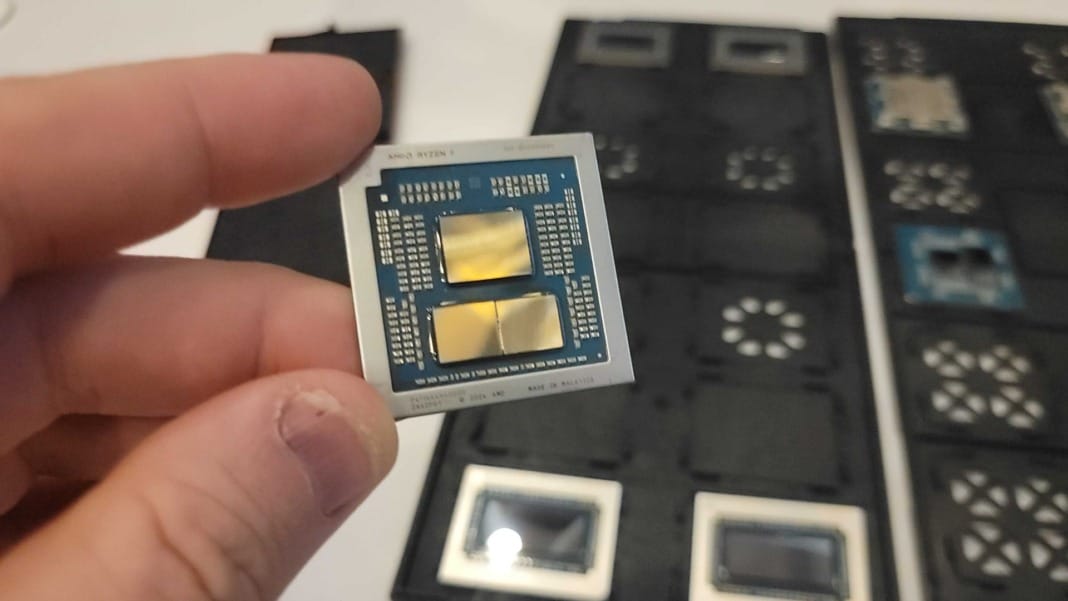Reports are emerging of AMD’s Ryzen 7 9800X3D processors failing unexpectedly, with over 100 documented cases of dead CPUs. Most of these failures involve ASRock motherboards, raising concerns over compatibility issues and possible manufacturing defects.
A Reddit user has compiled a detailed list of affected processors, highlighting failure patterns. Many users report that their CPUs stopped working within minutes or hours of use. Sudden shutdowns, instability, and complete system failures have been common complaints. While the issue is most frequently seen with ASRock motherboards, cases have also been reported with ASUS, MSI, and Gigabyte boards.
Update and summary on the dead 9800X3Ds
byu/natty_overlord inASRock
Some users suspect BIOS settings, particularly those related to voltage and memory overclocking, might be causing the problem. Theories suggest that aggressive voltage levels in BIOS, especially when using EXPO memory profiles, could push the CPU beyond its safe operating limits.
Possible cause linked to power settings
The Ryzen 7 9800X3D features AMD’s 3D V-Cache technology, which enhances gaming performance by stacking additional cache on the CPU die. However, this design also introduces additional constraints on heat and voltage management. Unlike standard Ryzen processors, the 3D V-Cache models have lower voltage tolerances, making them more vulnerable to excessive power settings.
Users speculate that certain motherboard BIOS configurations or firmware settings may allow unsafe voltage levels, leading to these premature CPU failures. While ASRock has not officially addressed the issue, some users have noticed that recent BIOS updates have included stability improvements. Other manufacturers, including ASUS, MSI, and Gigabyte, have updated firmware to improve compatibility with the new Ryzen chips.
Comparisons to past CPU failures
This situation resembles issues seen with Intel’s 13th and 14th-generation Core i7 and i9 processors. In those cases, high-end motherboards pushed aggressive power limits, leading to overheating and instability. Intel had to collaborate with motherboard manufacturers to release BIOS updates that refined power management and voltage regulation to prevent long-term CPU damage.
Now, AMD finds itself in a similar position. Affected users call for greater transparency from AMD and motherboard manufacturers, with some even suggesting a recall if failures continue to rise. Until AMD releases an official statement, users are advised to ensure their BIOS is updated and to avoid manually adjusting voltage settings when configuring their Ryzen 7 9800X3D processors.





